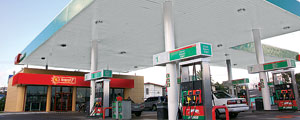
GENEVA — Commodity trading houses are expanding aggressively in Africa as they look to add volume and take on assets that promise to benefit from a continent achieving some of the highest economic growth in the world.
Fin24
Merchant traders have historically been mostly concerned with shipping Africa’s oil onto global markets, but are now viewing Africa as a destination market for fuels and are investing in the storage and retail networks the continent needs to develop.
But their growing involvement in a region where several top firms have faced legal problems or payment delays may worry would-be investors at a time when the firms, typically privately owned, are scouting for new forms of capital.
While several firms have ruled out following commodity trading house Glencore in a public listing of shares, some are issuing bonds or partial sales to fund their quest for assets.
Some of the most alluring assets are in Africa’s fuel market, which is set to grow by 40% by 2020 to 4,3 million barrels per day, according to Ecobank Research.
“If you want to be in Africa, you have to be prepared to invest. Sub-Saharan Africa is growing at a very decent rate and the highest regional area in the world today,” said Graham Sharp, co-founder of oil trader Trafigura and a senior adviser to consultants Oliver Wyman.
“There are some great opportunities there, but it’s not in the traditional trading business.”
- Chamisa under fire over US$120K donation
- Mavhunga puts DeMbare into Chibuku quarterfinals
- Pension funds bet on Cabora Bassa oilfields
- Councils defy govt fire tender directive
Keep Reading
Trafigura and commodity firm Vitol have both bought huge networks of oil service stations from oil majors BP and Royal Dutch Shell over the past few years.
Trafigura is now considering floating its subsidiary Puma Energy, an energy distribution company that has invested over $800m in Africa over the past 10 years.
One reason the fuel business is so attractive is that African countries have made slow progress in building their own refineries, leaving them increasingly dependent on imported fuels and the traders that can source and deliver them.
Trading houses have spotted this deficiency and, using their newly acquired service stations and storage assets, are extending their reach to landlocked interior countries such as Zambia and Uganda.
“Intra-regional flows of petroleum products in Middle Africa represent a major growth area, particularly with the advent of new oil producing countries. . . and the increasing energy demand of Middle Africa’s consumer markets,” said Rolake Akinkugbe, Ecobank’s head of oil and gas research.











